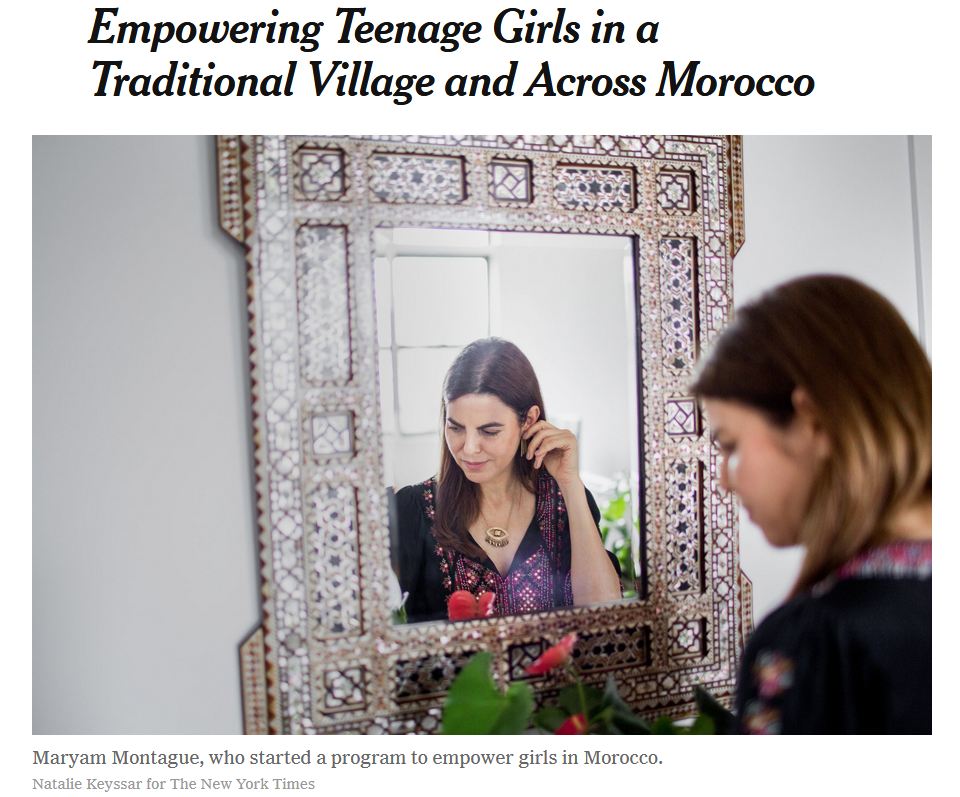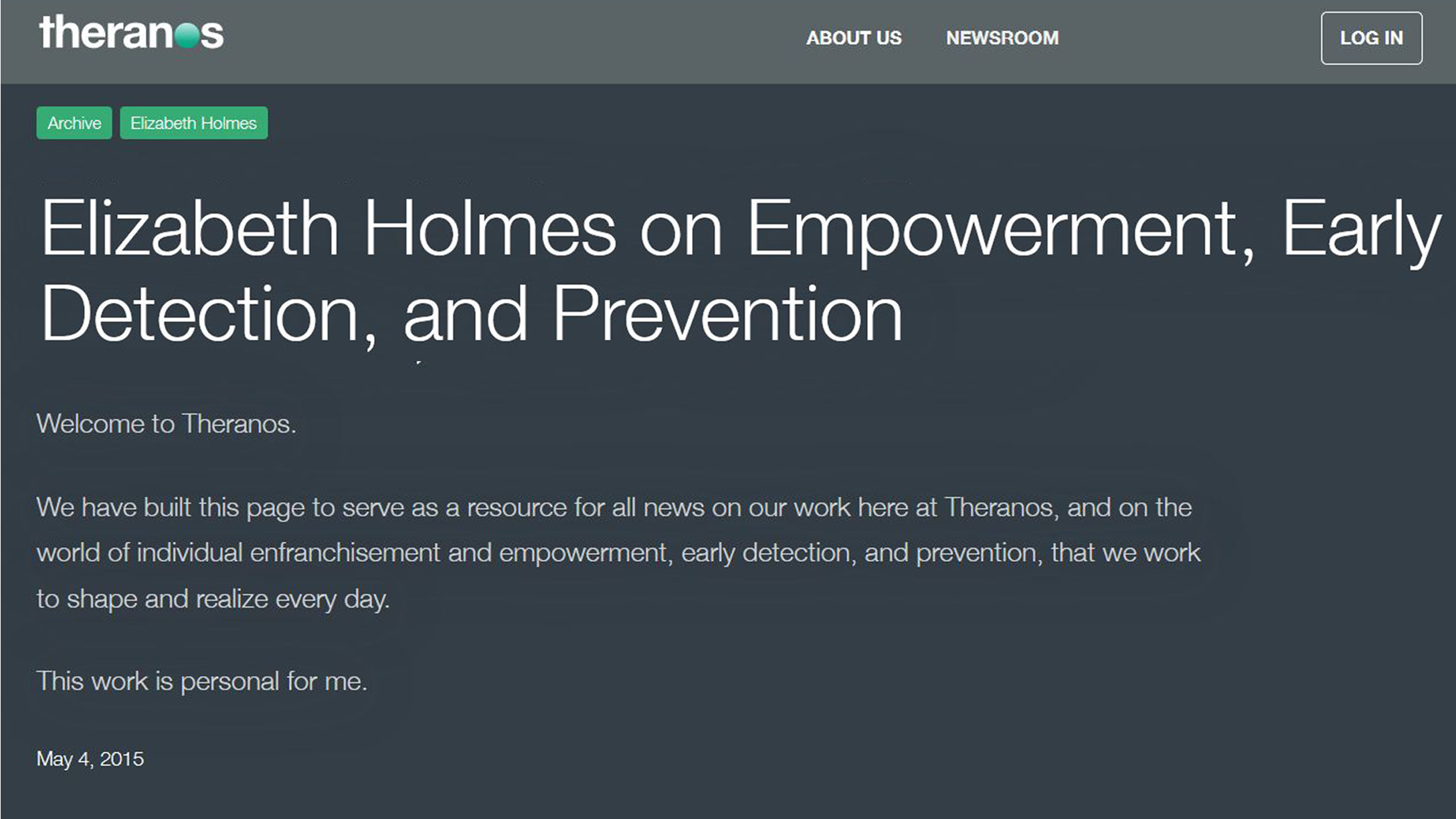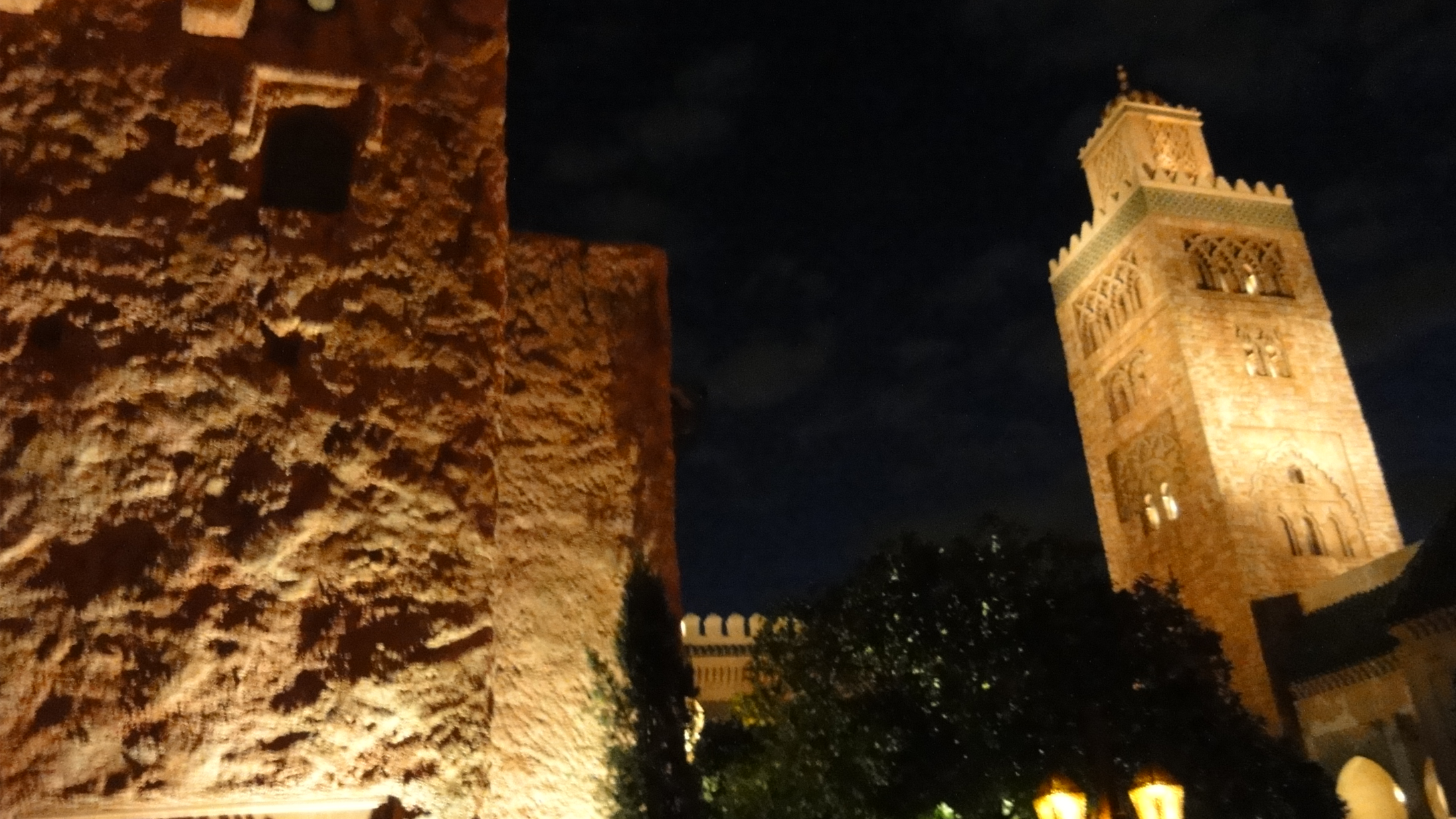The conveniently toothless word “empowerment” is easily mocked, but the mockery itself serves a darkly useful purpose: What cannot be taken seriously need never be examined, let alone condemned.
This comfortable habit of casual derision prevents Western media watchers from grasping the real import of certain ideas, like this one, “empowerment,” which is now become a fig leaf for questionable claims and even outright fakery, especially where women’s rights are concerned. Beyond this, the kind of rhetoric in which “empowerment” appears is often the kind that is meant to make you stop thinking about something, rather than keep thinking about it.
Just a week or so ago, a story about Maryam Montague appeared in the New York Times. Montague runs what appears to be the Moroccan equivalent of GOOP: Shopping, but with a self-realizing, philanthropic veneer. She and her architect husband also built this lovely, luxurious boutique hotel in Morocco. Okay, here is the headline of the story.

Where are the photos of said girls? No girls in the headline photo. Just a good-lookin’ lady, a self-styled “social entrepreneur” enjoying beautiful surroundings, flowers, jewelry and so on. No girls are pictured elsewhere in the piece, either, empowered though they may be. However there is a sumptuous photo of “Peacock Pavilions,” which is the name of the fancy Moroccan hotel. It’s “a favorite staging ground for international fashion and design magazine photo shoots,” the Times says.
Maryam Montague — a former humanitarian aid worker turned hotelier, designer and self-described “social entrepreneur” — came up with the idea of giving these girls a voice through a program she created, Project Soar.
How does this not-Moroccan lady presume to “give these girls a voice”? The short answer is, apparently, by encouraging them to stay in school, and offering tutoring and coaching of various kinds: Fair enough. Girls in the Soar program wrap up their sessions of “after-school activities” by “shouting affirmations,” according to the Times:
“‘I am strong! I am smart! I am capable!’ they cried out. ‘I am a leader! I am a feminist!’”
Which, fine, until you start reading what Human Rights Watch has to say about Morocco, where there are problems in the area of women’s rights that may remain stubbornly resistant to the after-school affirmations of teen girls.
The situation of Moroccan women is as as specific and as dire as the promise of “empowerment” is soft-focusedly diffuse.
A national government survey of women ages 18 to 65 in 2009 found that 62.8 percent had experienced physical, psychological, sexual, and economic violence in Morocco. Of the sample interviewed, 55 percent reported “conjugal” violence and 13.5 percent reported “familial” violence.
Human Rights Watch interviewed 45 people in Morocco, including 20 women and girls who had suffered domestic abuse, in September 2015. They described being punched, kicked, burned, stabbed, or raped, or otherwise abused by their husbands or other family members.
In February, after a decade of work by women’s rights groups, none of which are named in the Times’s Project Soar story, a new law to protect women from abuse was passed in Morocco. But the law “requires survivors to file for criminal prosecution to obtain protection, which few can do,” Human Rights Watch notes dryly. “Nor does it set out duties of police, prosecutors, and investigative judges in domestic violence cases, or fund women’s shelters.” To top it off, there are no explicit consequences for failing to enforce the law.
But for $6,600 per couple, the weeklong Give Back retreat (MOVE+MANIFEST [LUXURY]) from Eat Pray Move this September offers a fabulous Marrakesh getaway, and “at least ten percent of profits” will be donated to their “humanitarian partner,” Project Soar.
In addition to daily yoga classes, the retreat includes “meaningful discussions and fun activities intended to help you tap into your own inner wisdom and heartfelt desires.”
It’s so nice to tap into your own inner wisdom and heartfelt desires in a desert paradise!
Because the Times giveth and the Times taketh away, Rafia Zakaria wrote compellingly there last October on this very theme (“The Myth of Women’s ‘Empowerment’”, October 5th.) “It’s time for a change to the ’empowerment’ conversation,” she wrote, painstakingly detailing the lack of economic, social or political awareness or foresight on display in many Western “empowerment” initiatives.
“[W]ithout political change, the structures that discriminate against women can’t be dismantled and any advances they do make will be unsustainable.”
Not quite a year later, the Times would report on Maryam Montague’s “latest design enterprise — a new fashion line, Agent Girlpower. The small collection includes athleisure wear and jewelry inscribed with feminist messages in both Arabic and English.”
To be clear: I’m not saying that Montague’s philanthropic efforts are harmful or bad; I’m saying that I think Western media reports like this one, to the extent they take the place of real coverage, are very harmful and bad. Also I have to question the government funding a vendor of “athleisure wear and jewelry inscribed with feminist messages” in a country where there are fewer than ten shelters for victims of domestic abuse.
The thing of it is that you don’t have to say what Empowerment means, as in, exactly what real problems Empowerment might address, or how they might or might not be addressed in some other way.

Empowerment is a word you can use to distract, to deflect criticism, and even to raise money. In the context of specific foreign policy influence, putting an empty, pretty concept in the place where a fact or an idea or an action might have been is… well, it’s one way of practicing dismediation.
Certain feminist and academic writers have been onto the myth of “empowerment” for a long time. In Why I Am Not a Feminist, Jessica Crispin wrote that feminist calls for “empowerment” have come at the expense of absolute demands for systemic political change. Why? Because, in Crispin’s reading, women who had gained power stopped challenging the system, and began protecting it.
Now that we have access as women, women in positions of power are much less likely to attempt to dismantle this system of inequality. Power feels good. Capitalism feels good. It gives you things, as long as its boot is not on your neck. […] If you value power, people will give you power, and with that comes money, luxury, a way out of all that oppression and misery. Little thought will be given to those left on the outside.
Those who brought the idea of “empowerment” into common use in order to confect a sense of kindliness and egalitarianism to cover over their own desire for power or their greed or their obtuse self-regard are playing out the same story; “empowerment” is, more often than not, a thin shell of sugar to coat the garbagio beneath. Noblesse oblige, but without the noblesse. Or much oblige, either.
In Dismediation Today we break down the breakdown of public discourse. The medium isn’t the message; it’s not even the medium.






